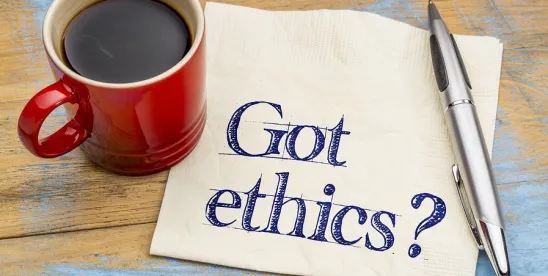In our previous blog post, “#CAUTION: FTC Ramps Up Enforcement of and Education on Social Media Influencer Disclosure Requirements,” we discussed a recent Federal Trade Commission (the “FTC”) settlement and the FTC’s increased focus on misleading advertising and endorsements on social media platforms.
The complaint, brought by the FTC’s Bureau of Consumer Protection (“BCP”), was against two online gaming influencers, Trevor Martin (a/k/a TmarTn), Thomas Cassell (a/k/a TheSyndicateProject, Tom Syndicate, and Syndicate), and their corporation CSGOLotto, Inc. (“CSGOLotto”). The BCP alleged that Martin and Cassell (1) did not disclose their ownership in CSGOLotto, (2) were paid to endorse the online platform’s gambling service and (3) asked other gaming influencers to promote the service in exchange for payments between $2,500 and $55,000 without making them disclose such payments. In response to the complaint, neither Martin, Cassell, nor CSGOLotto admitted or denied the allegations, but instead agreed to enter into an Agreement Containing Consent Order with the FTC (the “Order”). The Order prevents them from misrepresenting an endorser of the product or service as an independent user or ordinary consumer of same and requires them to clearly and conspicuously state if the endorsers have a material connection to the product or service.
The Order led to an increase in questions about necessary disclosures when influencers and endorsers receive a benefit for discussing a product or service. In response to these inquiries, the FTC updated its FAQ document “The FTC’s Endorsement Guides: What People Are Asking”. The FAQ document states that the guiding principle behind the regulations is that the relationship between the influencer and product must be clear to the audience. It also answers additional questions related to proper disclosures, like how often and where the disclosure needs to appear.
On September 20, the FTC hosted a live Q&A session on Twitter called “Social Media Influencers,” using the tag “#influencers101,” to respond to questions from twitter users. The FTC fielded a number of questions including: (1) Do the built-in disclosure tools on social media platforms meet FTC standards? (2) When are disclosures necessary? and (3) When does the U.S. law apply? The FTC articulated that it “is only concerned about endorsements made on behalf of a sponsoring advertiser.” A key factor in determining if a disclosure or notice is necessary is whether the influencer received a benefit (e.g. free product, paid trip, dollar amount) from the sponsor that may have changed or influenced his or her opinion of the product or services. If a benefit or potential benefit was received, a disclosure is necessary. If the influencer posts about a product or service that he or she “just happens to like”, a disclosure likely is not necessary.
What can we take away from the FTC’s recent actions, guidelines and discussions? Three themes: (1) The FTC is turning more of its attention to regulating nontraditional means of advertising in hopes of protecting social media platform users from misleading advertisements and endorsements, (2) the audience (i.e. ads directed at U.S. consumers) triggers these rules, not the location the endorser is posting from, and (3) disclosures must meet specific standards.
Disclosures should be (1) “clear and conspicuous” (i.e. hard to miss and understandable), (2) in “close proximity” to the endorsement, representation or advertisement, and (3) convey the “material connection” between the product and influencer.
During the Twitter session, the FTC further articulated what it means to be “clear and conspicuous” and provided some takeaways:
- Put disclosures in the first three lines of the post;
- Use hashtags like “#ad” or “#paid” at the beginning of the post and do not bury them amongst other links and hashtags. Hashtags like “ambassador” are not sufficient;
- Superimpose a disclosure over your Snapchat or Instagram stories and keep in mind that followers have to have time to read the disclosure;
- In a series of disappearing posts, you may only need a disclosure on the first post if the disclosure stands out and viewers have time to process the disclosure before the next post appears;
- If your followers know you are a paid spokesperson, you do not need to include a disclosure every time you post about the product. However, if a “significant portion of your followers” are unaware of the relationship, you need to disclose it each time;
- If you are hosting a giveaway funded by a third party, state that it is sponsored by a third party;
- You do not need to list everything you received from a company to review a product. You can say you were paid or that you received an all-expense paid trip;
- If you work for a brand and post about a product, disclose your connection to the brand, even if you were not paid an additional amount to post about the product;
- If you are the brand, monitor and follow up with the influencer to make sure that he or she has followed your written advice about disclosure; and
- Do not rely on built-in tools (e.g. “Paid” tag on Facebook or “Includes paid promotion” mark on YouTube) for disclosures.




 />i
/>i
